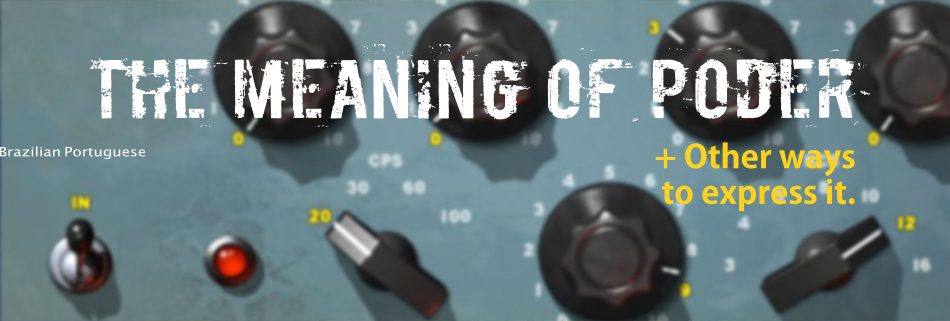The meaning of PODER overlaps with other Portuguese verbs like CONSEGUIR, DAR and TER ~ All of these can be used to express: to be able to / can.
This is actually a real problem. There are so many different ways to express can. You'll learn the most common ones right away, but it's important to become acquainted with the others as soon as possible because you're going to hear them and they will trip you up.
Saying CAN in Portuguese is most easily done using PODER. It's also the one that everyone learns first so let's make sure we're all good with it.
Using PODER
We all love to use poder. It_is fun to say: pawdjee. If you don't already know and love it, please get acquainted with PODER.
Using CONSEGUIR
CONSEGUIR
can get pretty confusing. That's because sometimes it's used just like
PODER
, but it's also used in other ways.b
When CONSEGUIR & PODER express the same thing.
I've written a separate post about CONSEGUIR here.
When conseguir & poder don't agree
Conseguir can also take the meaning of to get, to manage to as well as, to succeed to.
The context shows this best:
to get to, to manage to ➜
One of the common expressions you'll hear is simply, Conseguiu? People will ask you that when they're wondering how something went -- if you were successful in getting something done. It's just like saying, Did you get it?
Using TER + como
What about other ways to express can in Portuguese?
If you want to totally confuse a Brazilian that's trying to speak English with you, try saying something like, Do you have any way to go to the store today? You'll get a blank stare and then realize you should have just said, Can you go to the store today? The same thing happens in Portuguese. Brazilians use TER + como to say to have a way to. Literally: to have how. Like this:
Using TER + condições
This is similar to ter como. You're just saying that you have conditions to do something.
This is of course using the Imperfect Subjunctive (ultra fancy!)
Using DAR para
This is another popular way to express can.
The best way to get it is with a mini-dialog:
Você pode concertar sua bicicleta com essa peça? ➜ Can you fix your bike with this part?
Dá para fazer sim!
➜ Yes, I can do that!
The power of DAR + para is everywhere.➜

Comentários